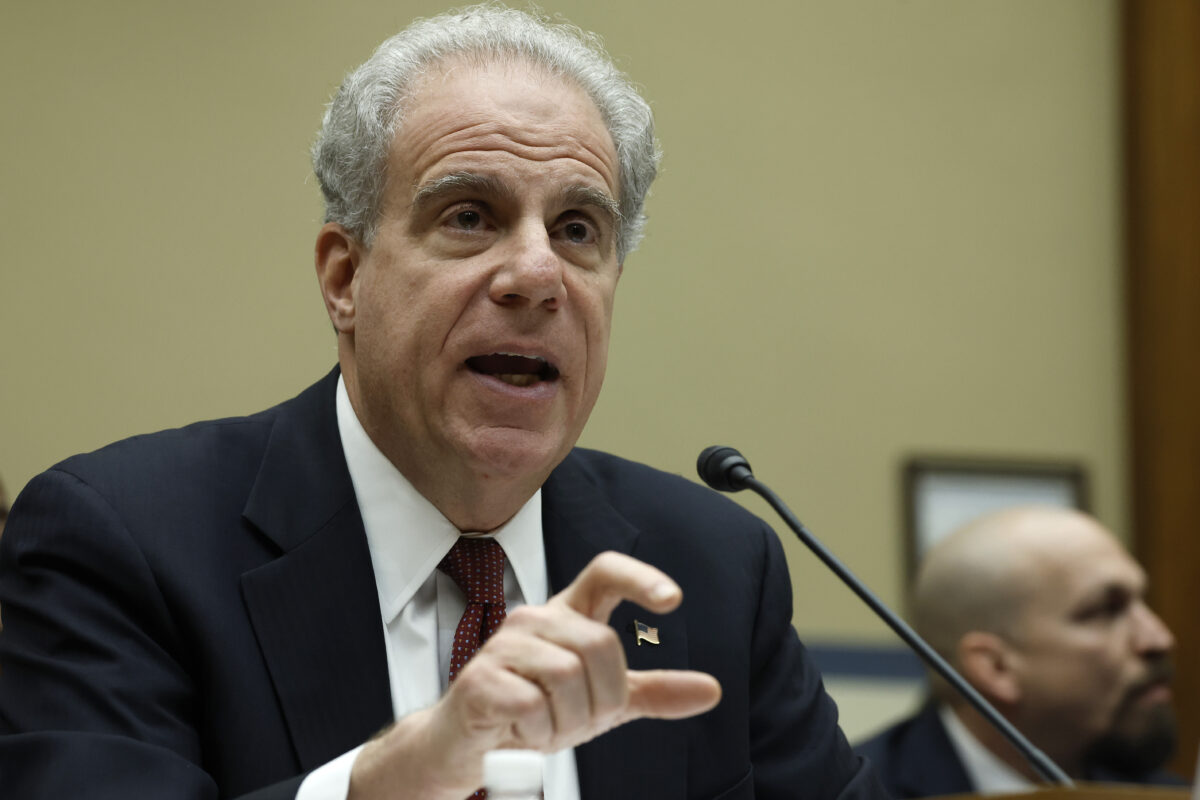


More than one million secret searches of Americans conducted by the FBI were made erroneously, a watchdog testified to Congress on April 27.
Around 30 percent of the approximately 3.4 million searches were done in error, Department of Justice Inspector General Michael Horowitz testified.
“It’s obviously very concerning that there’s that volume of searches,” Horowitz told a U.S. House of Representatives subcommittee, adding that he was particularly concerned with the high error rate.
The searches in question were conducted by FBI personnel with authority under the Foreign Intelligence Surveillance Act (FISA). The bill enables U.S. authorities to gather information on U.S. citizens suspected of being involved with possible spies or terrorists.
Some 3.39 million searches were conducted by the FBI in 2021, U.S. intelligence officials have said. That was up from just 1.2 million in 2020.
Sharon Bradford Franklin, chair of the U.S. Privacy and Civil Liberties Oversight Board, told members that Congress should pass new legislation imposing greater safeguards into the system to protect Americans. That should include requiring probable cause or court review for each query of an American, she said.
“Congress certainly has the authority to do that. And I think that’s one of the key issues for this committee in the Congress to consider,” Horowitz said. Adding new requirements, though, could increase the FBI’s workload, he said.
Rep. Jim Jordan (R-Ohio) indicated support for adding new requirements.
“The solution is simple right? Require probable cause if you’re going to query this database on American citizens,” he said.
He also floated revoking the FBI’s access to the database entirely.
The FBI did not respond to a request for comment.
Rep. Jerrold Nadler (D-N.Y.) also said that the system needs to be updated “to better protect Americans’ communications.”
Beth Williams, a member of the U.S. Privacy and Civil Liberties Oversight Board, told members that if the FBI were taken out of the picture, another agency would need to fill the void.
“The question is, if the FBI is not doing these searches to figure out who in the U.S. is talking to terrorists abroad, who is going to do it?” Williams wondered. Revoking FBI access runs the risk of making the CIA or National Security Agency, which “look outward,” look “inward on Americans,” she added.
The FBI’s work under FISA came under renewed scrutiny after personnel surveilled a U.S. citizen that worked for then-candidate Donald Trump’s campaign. Serious errors were committed in the surveillance requests, Horowitz’s office found.
An investigation of a sampling of queries that followed uncovered that none were carried out properly.
FBI officials have previously vowed to cut down on problems and urged members to continue reauthorizing FISA.
The hearing came as members consider reforms to the act, which is set to expire at the end of the year without congressional action.
